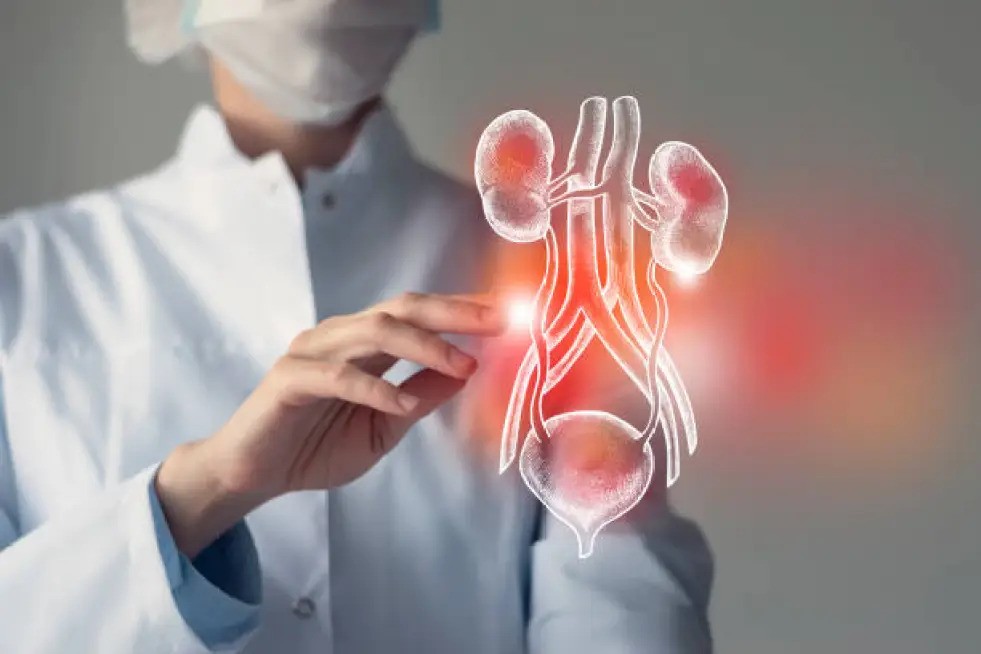Urology is a branch of medicine that focuses on the diagnosis, treatment, and management of diseases and disorders of the urinary tract and the male reproductive system. This specialty addresses conditions affecting the kidneys, ureters, bladder, urethra, and the male reproductive organs, including the prostate, testes, and penis. Urologists are trained to handle a wide range of issues, from urinary tract infections and kidney stones to more complex conditions such as cancers of the urinary and reproductive organs, male infertility, and erectile dysfunction. They employ various diagnostic tools and treatment modalities, including medical management, minimally invasive procedures, and surgery.

Urology also intersects with other medical fields such as nephrology, gynecology, and oncology, highlighting its multidisciplinary nature. The advancements in urological research and technology have significantly improved patient outcomes, making urology a dynamic and evolving field in modern medicine.
How Urology Works
Urology encompasses various diagnostic and therapeutic approaches tailored to treat the urinary and reproductive systems. Urologists use a combination of medical history evaluation, physical examinations, and advanced diagnostic tests to identify urological conditions. Imaging techniques like ultrasound, CT scans, and MRIs, along with laboratory tests, play a crucial role in diagnosis. Treatment strategies can range from medication and lifestyle changes to surgical interventions.
Diagnostic Procedures:
Urologists utilize imaging techniques, endoscopy, and laboratory tests to diagnose conditions. Techniques like cystoscopy allow direct visualization of the bladder, while imaging methods provide detailed anatomical information.
Medical Management:
Conditions such as urinary tract infections and benign prostatic hyperplasia are often treated with medications that target specific symptoms or underlying causes.
Minimally Invasive Surgery:
Advances in technology have led to minimally invasive techniques like laparoscopic and robotic-assisted surgeries, which reduce recovery time and minimize complications.
Traditional Surgery:
For complex cases, traditional open surgeries are performed to ensure comprehensive treatment. This is often necessary for large tumors or extensive structural abnormalities.
Post-Treatment Care:
Urologists provide follow-up care, including monitoring recovery and managing any long-term effects. This holistic approach ensures sustained patient well-being.
Application of Urology
Urology addresses a wide array of medical conditions through various applications, providing comprehensive care for the urinary and reproductive systems. Each application is tailored to the specific needs of the patient, enhancing the overall quality of life.
Urinary Tract Infections (UTIs):
Urologists diagnose and treat UTIs with antibiotics and lifestyle advice to prevent recurrence. Chronic UTIs may require further investigation to rule out underlying causes.
Kidney Stones:
Treatments include medication to facilitate stone passage or procedures like lithotripsy to break stones into smaller fragments. Surgical options are considered for larger stones.
Prostate Health:
Urologists manage conditions like benign prostatic hyperplasia and prostate cancer through medications, minimally invasive techniques, or surgery, depending on severity.
Bladder Issues:
Conditions like overactive bladder and incontinence are treated with behavioral therapies, medications, or surgical interventions to improve bladder control.
Male Infertility:
Urologists diagnose and treat male infertility using hormonal treatments, surgical corrections, or assisted reproductive technologies to enhance fertility.
Benefits of Urology
Urology offers numerous benefits by improving urinary and reproductive health, thus enhancing overall well-being. The advancements in urological care have made significant impacts on patient outcomes and quality of life.
Improved Diagnosis and Treatment:
Advanced diagnostic tools and treatment options allow for accurate diagnosis and effective management of urological conditions, reducing complications and enhancing recovery.
Minimally Invasive Techniques:
These techniques result in shorter hospital stays, less pain, and quicker recovery compared to traditional surgeries, benefiting patients significantly.
Comprehensive Care:
Urologists provide holistic care, addressing not only the immediate medical issue but also long-term health, including preventive measures and lifestyle modifications.
Enhanced Quality of Life:
Effective treatment of urological conditions alleviates symptoms like pain and discomfort, allowing patients to lead a more active and fulfilling life.
Early Detection of Serious Conditions:
Regular urological check-ups can lead to early detection of serious conditions like cancers, significantly improving treatment success rates.
Risks and Limitations
While urology provides numerous benefits, there are inherent risks and limitations associated with its procedures and treatments. Awareness of these factors is crucial for informed decision-making and effective management of patient expectations.
Surgical Risks:
Like all surgeries, urological procedures carry risks such as infection, bleeding, and adverse reactions to anesthesia. Minimally invasive techniques, while reducing these risks, cannot eliminate them entirely.
Complications:
Post-operative complications, including urinary incontinence and erectile dysfunction, can occur, particularly following prostate surgeries. These may require additional treatments or interventions
Diagnostic Limitations:
Despite advanced imaging and diagnostic tools, some conditions may remain elusive or require multiple tests for accurate diagnosis, leading to potential delays in treatment.
Side Effects of Medications:
Medications used in urology can have side effects, ranging from mild (e.g., gastrointestinal issues) to severe (e.g., cardiovascular risks), necessitating careful monitoring and management.
Recurrence of Conditions:
Some urological conditions, such as kidney stones or UTIs, have high recurrence rates, requiring ongoing management and lifestyle adjustments to minimize recurrence.
Preparation and Recovery
Proper preparation and recovery are essential for the success of urological treatments and procedures. Following specific guidelines can help ensure optimal outcomes and reduce the risk of complications.
Pre-Procedure Evaluation:
Patients undergo thorough evaluations, including medical history review and diagnostic tests, to determine the best treatment approach and identify any potential risks.
Medication Management:
Patients may need to adjust or temporarily discontinue certain medications prior to procedures to minimize risks and interactions.
Lifestyle Adjustments:
Adopting healthy lifestyle habits, such as staying hydrated and maintaining a balanced diet, can aid in the prevention and recovery from urological conditions.
Post-Procedure Care:
Following a procedure, patients receive detailed instructions on wound care, activity restrictions, and signs of complications to watch for, ensuring a smooth recovery process.
